Three trans journeys: 'I spent so long hiding'
- Published
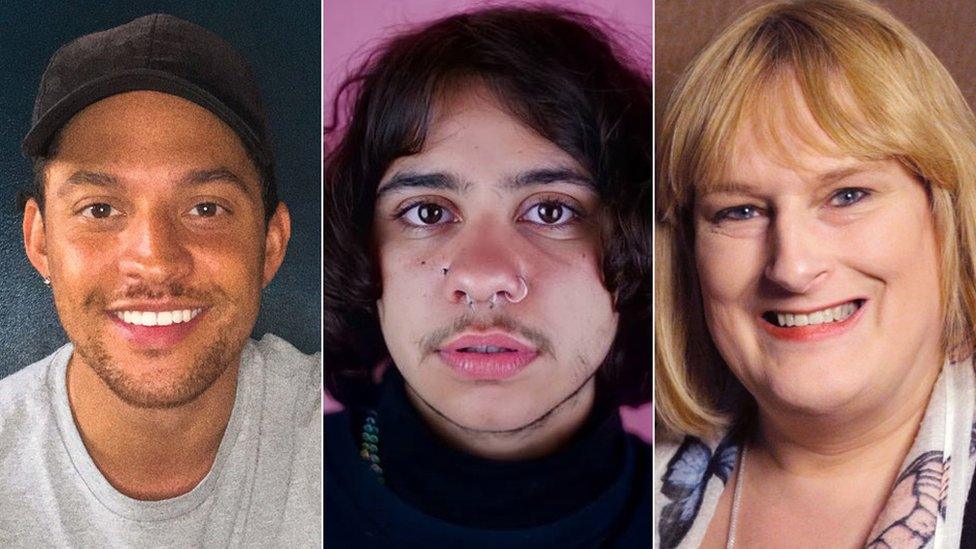
Calvin Lunt, Felix Mufti and Annie Wallace open up about their transgender journeys
"My earlier self would have looked at what I'm doing now with abject horror because I spent so long hiding."
In 2015, Annie Wallace was cast in Channel 4's Hollyoaks as Sally St. Claire, becoming the first transgender actress to play a regular transgender role in a TV soap in the UK.
She has been speaking to BBC Radio Merseyside about her transition, when a person identifies as the opposite gender to their biological sex.
In the programme, she and two others - Calvin Lunt and Felix Mufti - open up about the formative moments that shaped their transgender journeys.
Annie, whose experiences helped to create the trans character Hayley Cropper in Coronation Street, only decided to come out as transgender to her friends on her 50th birthday while in the midst of auditioning for various roles.
It had been 26 years since she had transitioned from male to female and she decided it was time to "embrace who I am and do it publicly".
"A third of my friends kind of knew but didn't say anything, a third of them kind of suspected and a third of them had no idea," she said.
"I thought if people pick up on [the fact] that I'm trans and if they want to have the conversation, I'll have the conversation with them, but I'd rather not as it's not the most important thing about who I am."
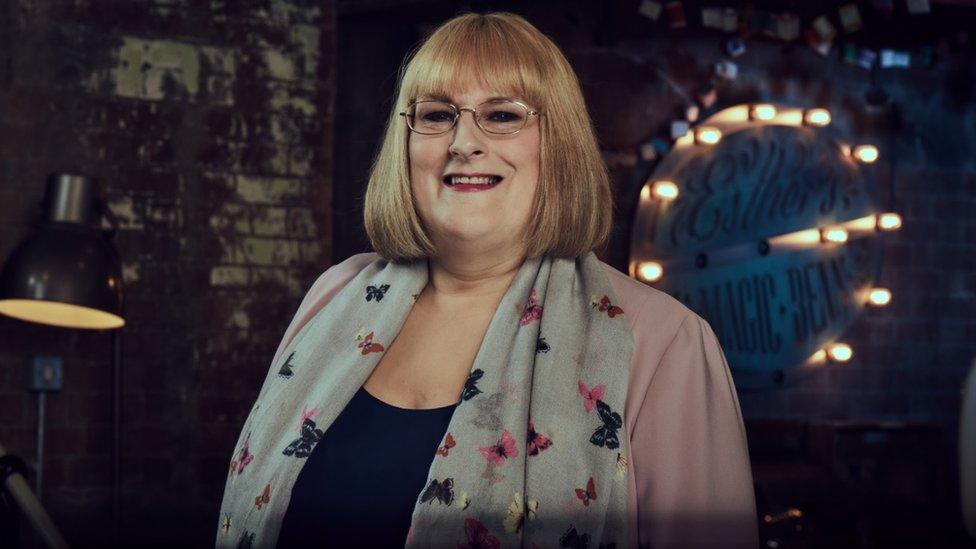
Annie Wallace is currently playing Sally St. Claire in Channel 4's Hollyoaks
Annie transitioned at the age of 24 and said a lot had changed in the decades since.
"It was a long time ago and culturally and socially, the position of trans people was very different," she said.
"Although we are in this strange turnaround at the moment, where trans people are once again getting stared at.
"Being a trans person back then was pretty lonely and the sense of isolation was pretty overwhelming, so to look forward to [being cast] in Hollyoaks in 2015 would have been literally la la land."
Like Annie, many who transition to a gender different from their sex recorded at birth are happy with their decision, but that was not the case for Calvin.
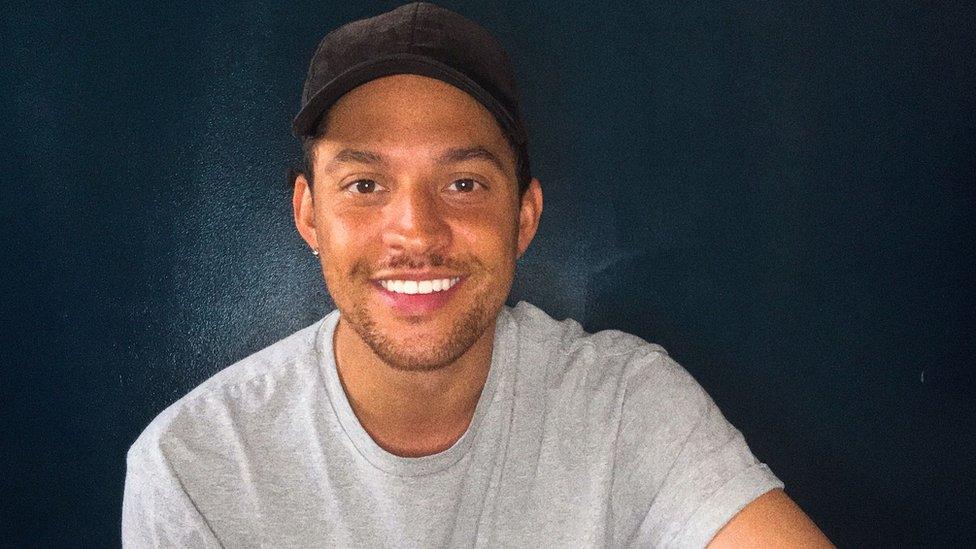
Calvin Lunt said he had now "accepted who I am"
The 31-year-old, from Liverpool, was born male but made the decision to transition to female, using the name Cal Fox.
Growing up, Calvin knew he was attracted to men and, after discovering the world of drag, he felt he identified as female.
But in 2014, he made the decision to detransition following a breast augmentation appointment.
At that point, he had been taking hormones for nine months.
"The surgeon said 'we're going to be able to do this for you, but not right now... we will be able to do it for you in a couple of months' time once you've got more breast tissue there'," he said.
"And the words that he said next I'll never ever forget: 'And we'll have you happy then.'
"I had to look at that and really dissect that."
Looking back, Calvin believes he was always looking for external validation from a lot of people that he did not even know.
"I just wanted to be accepted," he said.
"But when I turned around and looked at it, it was me. I wasn't accepting myself.
"I've accepted who I am, I've accepted my sexuality, but now I have to learn to love that. That's what my job is from now on."
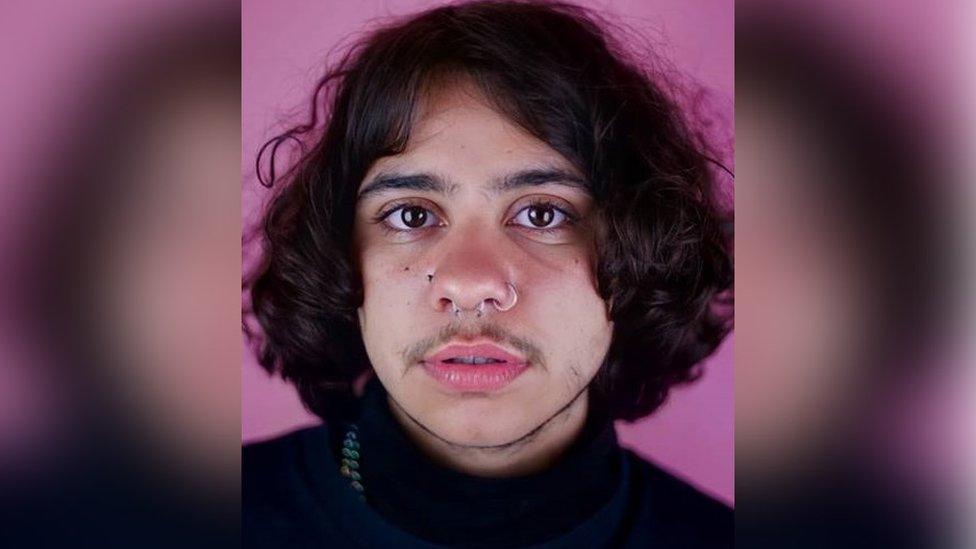
Felix Mufti said having better access to services would have stopped him "hating myself for no other reason than long waiting times"
Felix started taking hormones about a year and a half ago and has recently had what he refers to as his "top surgery" - an operation to remove breast tissue.
The 20-year-old, from Liverpool, was first referred to a gender-identity clinic at the age of 14, but had to wait three years for his first appointment, so decided to set up a fundraising page to pay for his surgery.
"I've known what I've wanted for a long time, but the barriers with stuff like the underfunding of the gender services in the UK make it near impossible," he said.
"I mean if you want to medically transition, you either need a lot of money or time, and who has either of them things in excess?
"Especially trans people who face a lot of high unemployment rates and things like that."
He believes the lack of funding for gender clinics is a "huge problem that people don't know about".
"Trans people are being expected to live in a way that they don't feel comfortable in and don't feel represented," he said.
In 2020, three senior judges ruled that children under 16 are unlikely to be able to give informed consent to treatment involving puberty-blocking drugs, which delay the onset of puberty.
The decision is currently being challenged in the Court of Appeal by the Tavistock and Portman NHS Foundation Trust, who say puberty blockers give children distressed by their birth sex time to consider "options".
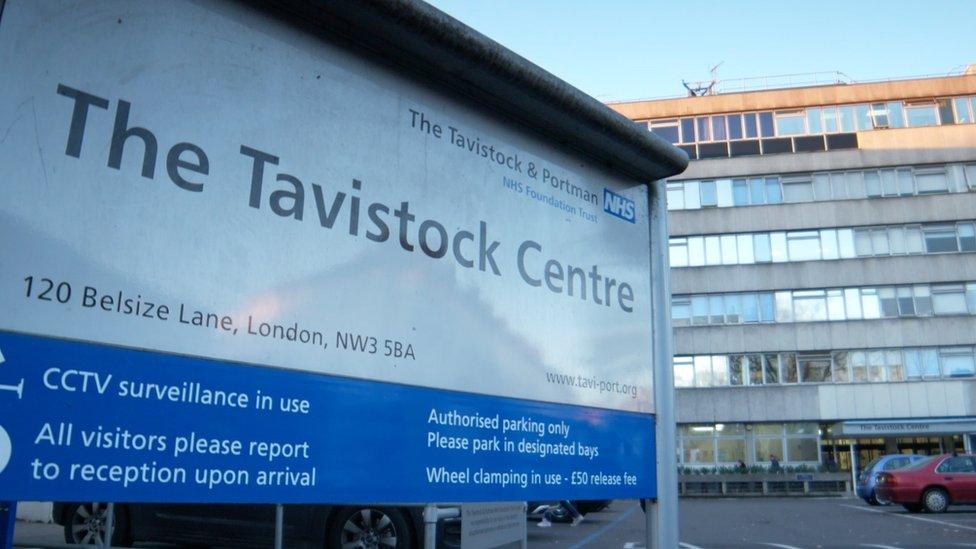
Tavistock and Portman NHS Foundation Trust has argued throughout the case that it provides safe treatment
Felix said he believes if he had had access to puberty blockers it would have saved him "years of dysphoria" - the sense of unease caused by a mismatch between the person's biological sex and their gender identity - and "hating myself for no other reason than long waiting times".
"The childhood I could have lived has been taken away from me," he added.
An NHS spokesperson acknowledged that "demand for gender identity services continues to rise as more people feel able to come forward for support and treatment".
"[This] is why the NHS has increased investment to respond to rising demand, while the independent review of these services, external will recommend improvements."
A Department of Health and Social Care spokesperson said: "It is crucial that transgender people get support when they need it and we have more than doubled our funding for gender identity services since 2016.
"An additional four new gender clinics opened in the past year, working with their local transgender communities, and will help to reduce the current waiting list by 25% by 2024."
In 2020, Conservative MP Liz Truss, who was the minister for women and equalities at the time, said in a parliamentary statement:, external "Trans people tell us that waiting lists at NHS gender clinics are too long. I agree, and I am deeply concerned at the distress it can cause.
"That is why we are opening at least three new gender clinics this year, which should see waiting lists cut by around 1,600 patients by 2022."
To listen to Annie, Calvin and Felix's stories then tune into BBC Radio Merseyside at 19:00 BST on Thursday 16 September or catch up on BBC Sounds.
The radio programme has been produced by Christine Willis and presented by Roger Hill.

Why not follow BBC North West on Facebook, external, Twitter, external and Instagram, external? You can also send story ideas to northwest.newsonline@bbc.co.uk
- Attribution
- Published1 August 2021
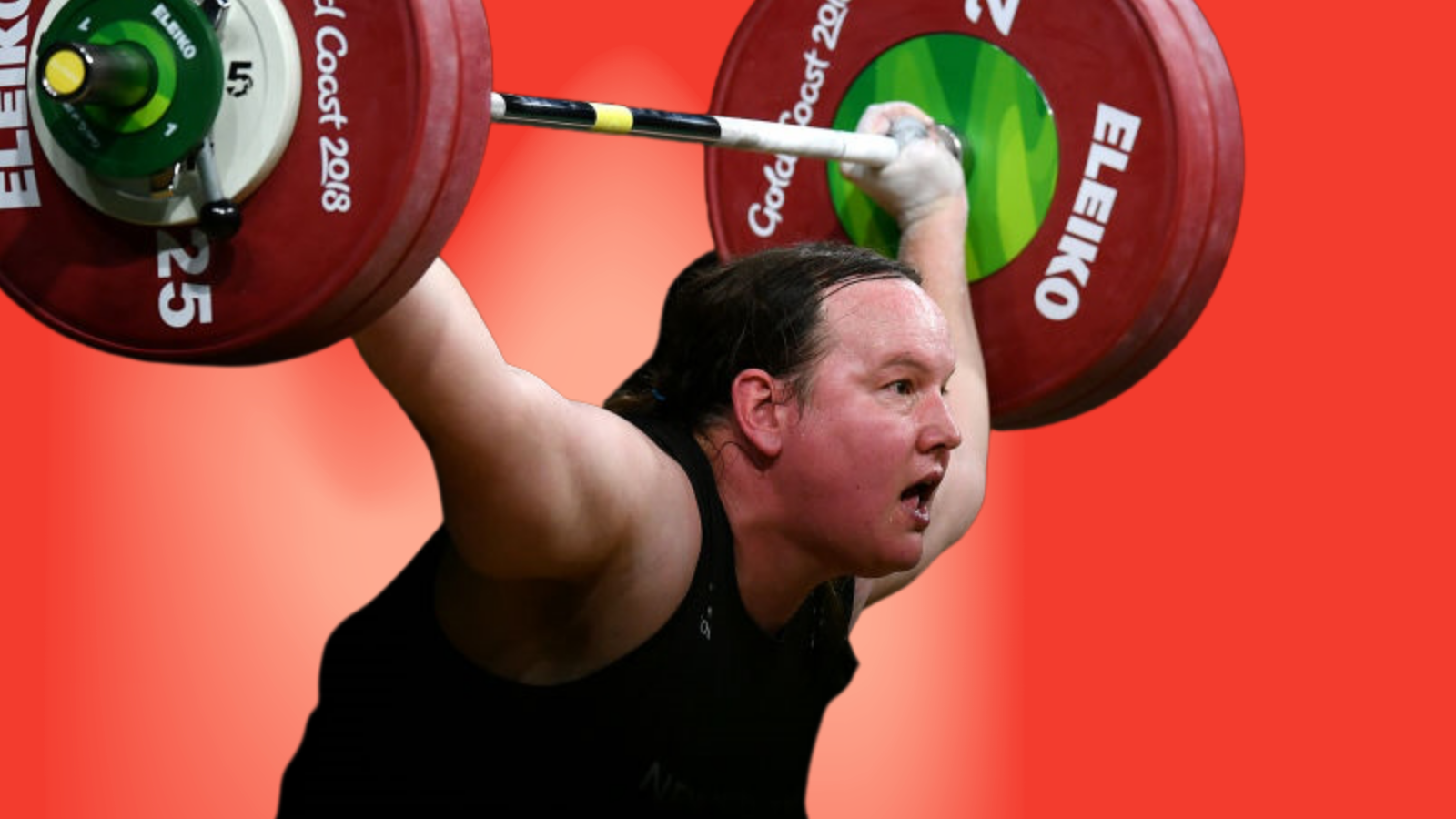
- Published23 June 2021
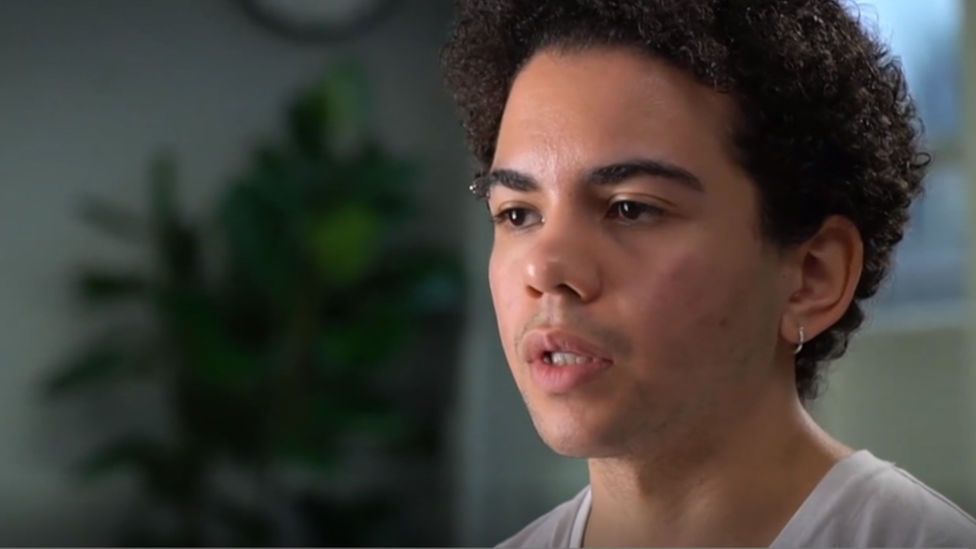
- Published16 May 2024
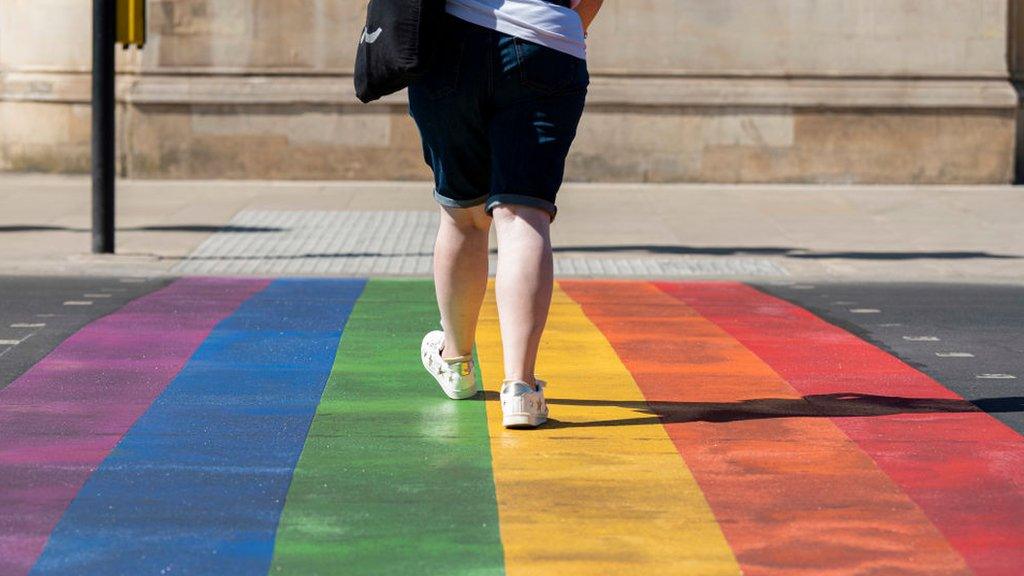
- Published4 May 2021
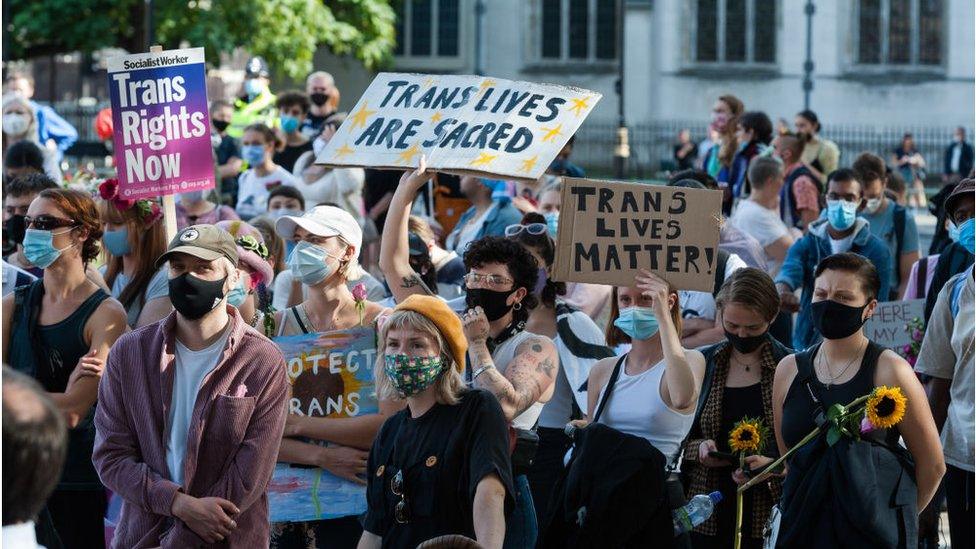
- Published30 April 2021
